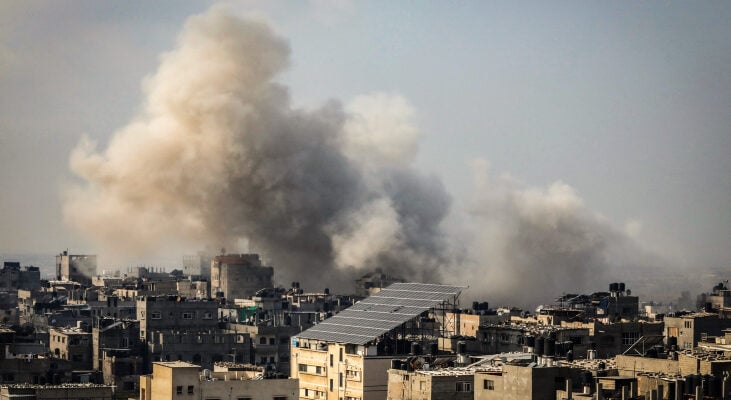“An Israeli victory in Rafah can also force a recalculation of the course on the part of Hezbollah,” says retired Brig. Gen. Amir Avivi.
By World Israel News Staff
The Hamas terror group is intentionally dragging out talks aimed at garnering a ceasefire and hostage release deal, in the hopes that international pressure against an Israeli operation in Rafah will continue to build, a former Israeli army general said on Sunday.
Retired Brigadier Gen. Amir Avivi, who once served as the deputy head of the IDF’s Gaza Division, stressed that Hamas is not negotiating in good faith. Rather, they are using the talks to prepare for an Israeli offensive in Rafah
“The negotiations should end and the order to enter Rafah should be given,” Avivi told Hebrew-language outlet Maariv.
“Hamas does not want a deal, its goal is to delay the entry into Rafah. Egypt, Qatar and the U.S. are also delaying the operation,” he continued.
The terror group “believes that the delay works in its favor and will create political pressure.”
However, “entering Rafah is an existential issue on Israel’s part. Only [an invasion of the city] will allow the destruction of Hamas, its civilian control and military capabilities.”
Avivi said that a decisive victory over Hamas is critical for restoring Israel’s deterrence against other regional terror groups, which was severely diminished following the October 7th terror onslaught.
“When Hamas is destroyed, the message to the region will be clear,” he said. “Entering Rafah will be a positive strategic turn, it will allow attention to be turned to dealing with the [ongoing Hezbollah rocket fire in] the North and managing the Iranian challenge.”
Referring to Hezbollah’s continuous bombardment of northern Israel border communities for the past seven months, Avivi said that an incursion into Rafah would impact the Lebanese terror group’s actions against the Jewish State.
“An Israeli victory in Rafah can also force a recalculation of the course on the part of Hezbollah,” he said.
When Hezbollah sees that it “may end up” like Hamas, it may choose to scale back its activity.





